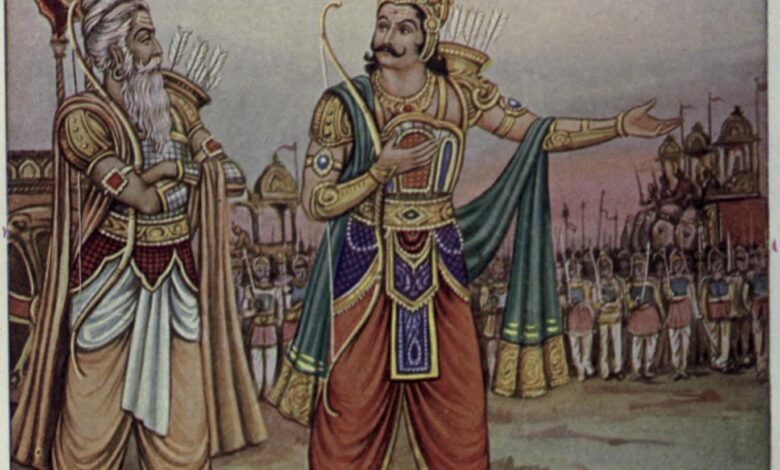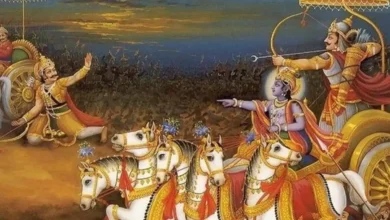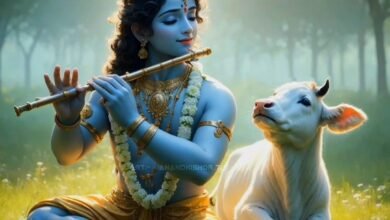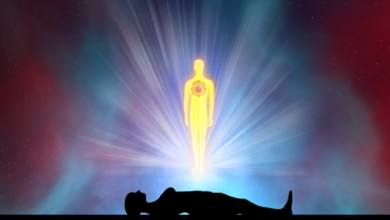Bhagavad Gita: Chapter 1, Verse 7

अस्माकं तु विशिष्टा ये तान्निबोध द्विजोत्तम |
नायका मम सैन्यस्य संज्ञार्थं तान्ब्रवीमि ते || 7||
asmākaṁ tu viśhiṣhṭā ye tānnibodha dwijottama
nāyakā mama sainyasya sanjñārthaṁ tānbravīmi te
English Translation : O best of Brahmins, hear too about the principal generals on our side, who are especially qualified to lead. These I now recount unto you.
Duryodhana’s Backhanded Provocation of Dronacharya
Tensions crackled through the Kaurava ranks as Duryodhana’s pointed words cut through the pre-battle tensions. His eyes settled on the formidable figure of Dronacharya, the venerated teacher whose expertise had trained generations of Kuru warriors. Yet the wily prince’s gaze held a spark of insolence.
“Dwijottama,” Duryodhana addressed his elder, the honorific dripping with thinly-veiled condescension. A Brahmin by birth, Dronacharya had risen to become a supreme master of military science. But Duryodhana’s barbed tongue questioned whether the aging guru’s resolve would falter when bloodshed began.
The prince’s words hung like an unspoken challenge. If Dronacharya did not display the ruthless valor expected of a consummate warrior, he would be relegated to the status of a pampered palace priest – more interested in fine foods than combat. It was a denigrating reminder that for all Dronacharya’s knowledge, he remained a Brahmin at heart.
Duryodhana knew the implication stung. He had witnessed his teacher’s humiliation and deprivations in younger days, miseries that had fueled Dronacharya’s determination to master the arts of war and archery. To question that hard-won skill was to dishonor the very identity the aging Brahmin had forged.
Yet the prince’s slight had purpose beyond petty provocation – he sought to light a fire that would push Dronacharya to implacable ferocity when blades crossed. The Kaurava prince understood too well the debts of honor, loyalty and love that could shackle a warrior’s fury against those he had tutored or treasured.
And so, having issued his challenge, Duryodhana swiftly turned to naming the stalwart Kaurava generals and heroes, lavishing praise upon their bravery and battlefield prowess. It was a deft pivot, boosting morale and resolve while reinforcing his veiled message – that softness and sentimentality would ill-serve the Kaurava cause once the rivers of blood began to flow.
Discover more from Sanatan Roots
Subscribe to get the latest posts sent to your email.



